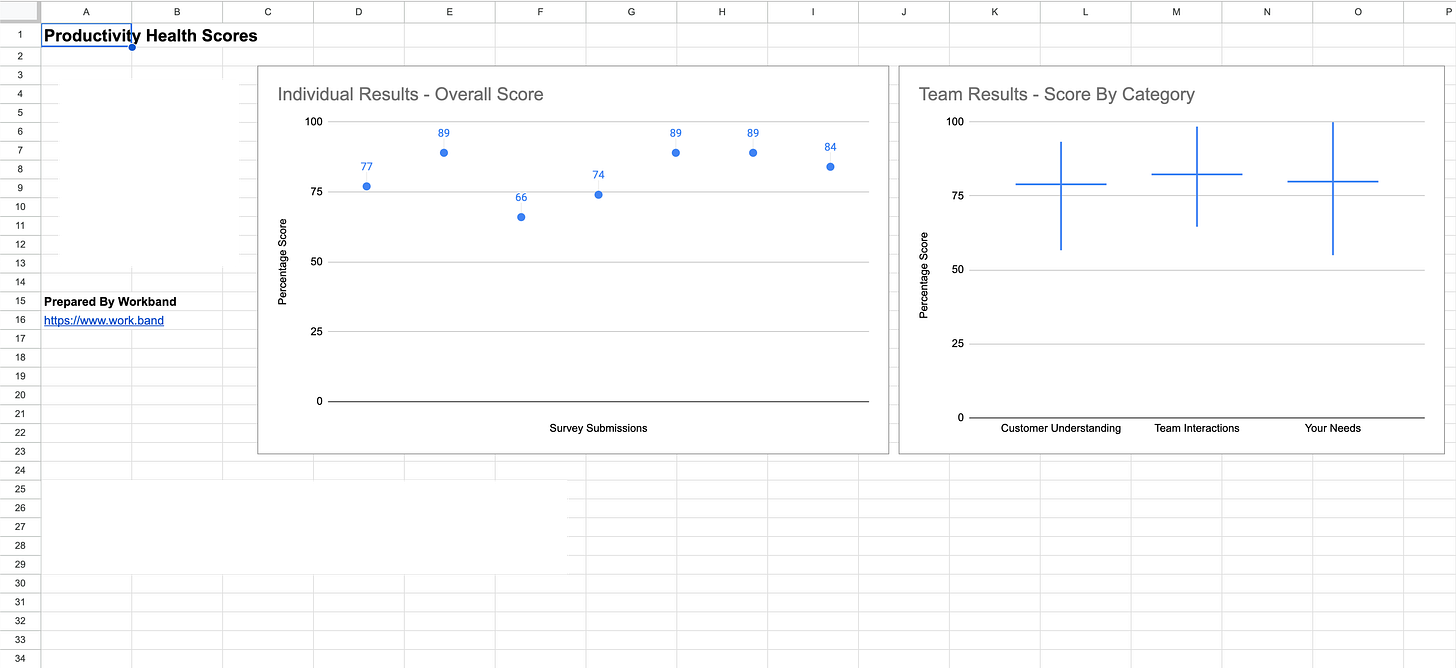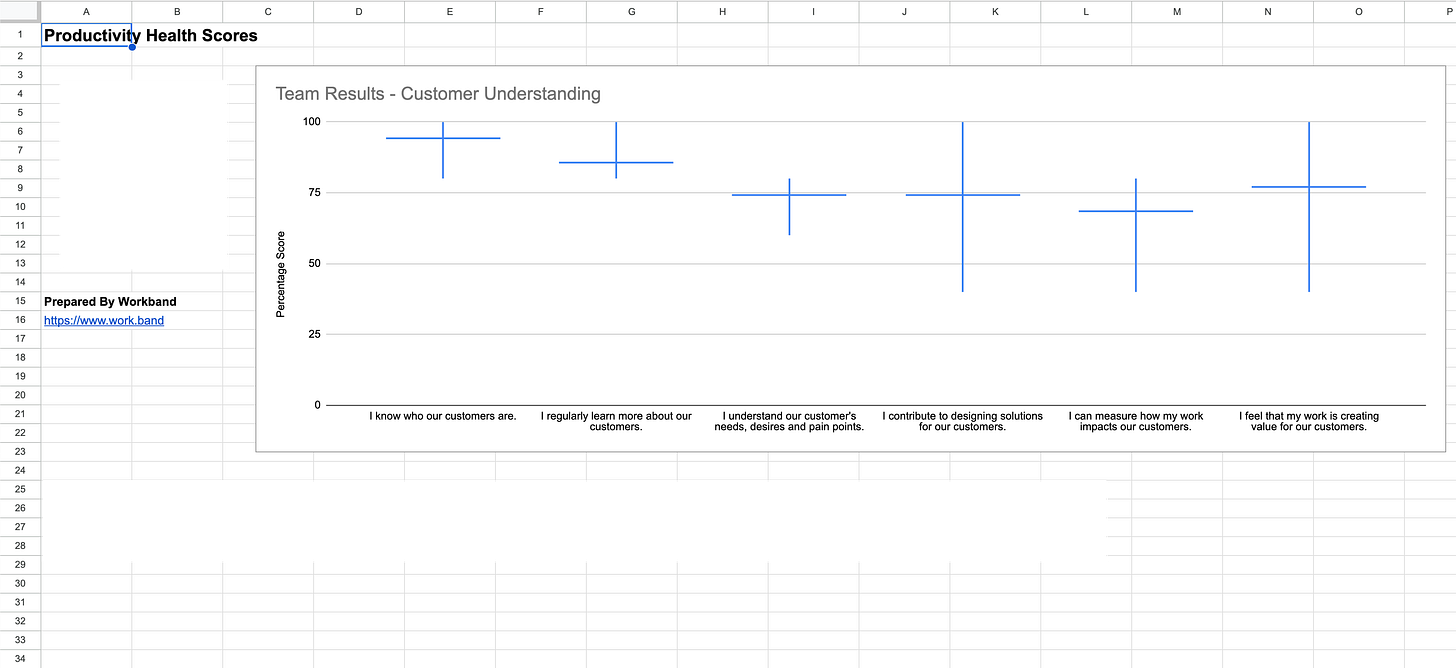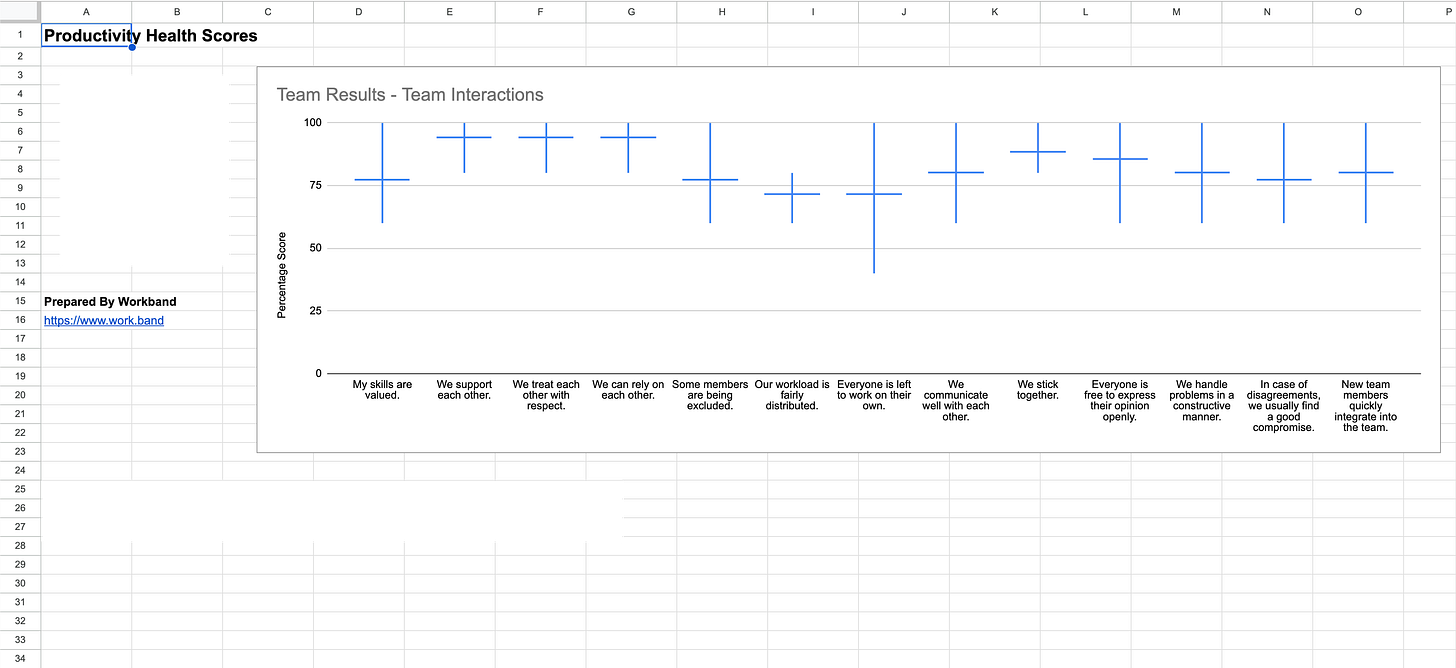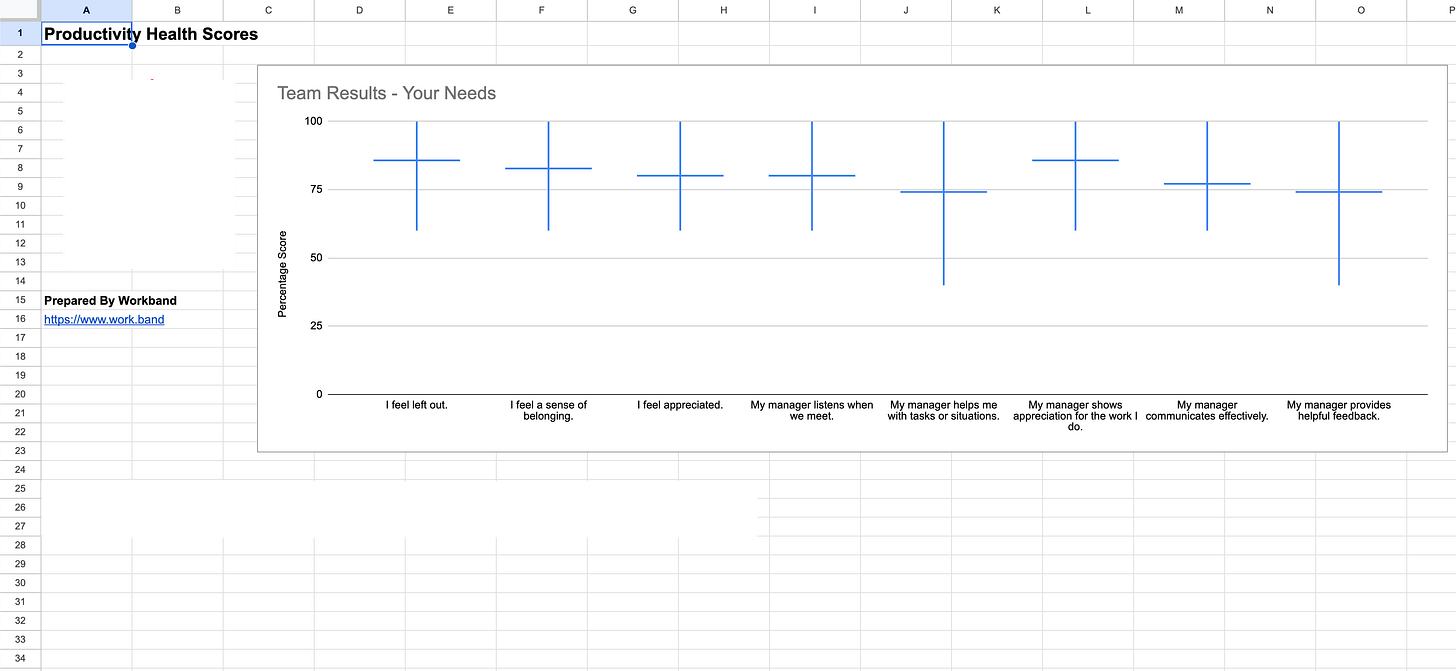Team Productivity Health Assessment
A Powerful Tool For Creating Awareness and Starting Your Productivity Journey
Many engineering leaders and managers struggle with creating healthy, productive teams. Sometimes its a lack of time, sometimes they aren’t clear on what they should prioritise.
To help you get started, I’ve developed a comprehensive team productivity health assessment. It’s a great tool to start a conversation with your team and reflect on what areas to focus on.
Access the free online version with the button or use the questions included below to implement your own.
I’m offering a complementary coaching session if you use the online version.
We will use this to review the results and plan the next steps for you and your team. See the end of this article for a sample of the analysis you can expect.

Purpose
This assessment is a starting point for conversation. This is its true value.
It allows teams to share their experience of their work environment. The results give an insight into where the team sees potential for improvement.
Traditional engagement surveys are often designed to serve executives. This assessment is designed to serve teams.
You can read more about how I think about software engineering productivity in a separate story:
Focus Areas
The assessment covers three focus areas which are foundational for a team to establish productivity.
Foundational means that without them, a team will not be able to discover and deliver a product that creates value for their customer. They are essential for creating healthy teamwork:
Customer Understanding
Teams are productive if their solutions have a positive impact on the customer.
Team Interactions
Teams are productive if they collaborate and force-multiply each other.
Individual Needs
Teams are productive if each team member is heard and seen.
But what about other areas that many companies focus on?
Avoided Areas
You may be wondering why this assessment does not cover other areas, such as:
Tooling
Teams are productive if the tools they use make it easy for them to turn their creativity into valuable customer solutions.
Output Quantity
Teams are productive when they can deliver many small changes frequently.
Operational Reliability
Teams are productive when their solutions are accessible by their customers.
I do believe that these areas are important for productivity, but they are operational concerns and a matter of optimisation once the foundational areas have been addressed for a team.
As such, I would argue that they are of secondary importance. Let me explain why:
Imagine this - Your team has the best tooling and they are pushing changes to the code at high frequency. The infrastructure is highly reliable and customer can always access it.
Sounds productive, but only if we care about ‘how much stuff’ we can build. It’s missing a crucial point: Software engineering is a creative process that uses technology to create new customer value.
This process of discovering and delivering value requires teamwork - people with different skills come together to create a valuable product. This is what healthy productivity is all about.
Assessment Questions
Each focus area has a number of scored questions (see below). These are followed by two optional questions that encourage sharing of “what works well” for the focus area and “what could be improved”.
Customer Understanding
I know who our customers are.
I regularly learn more about our customers.
I understand our customer's needs, desires and pain points.
I contribute to designing solutions for our customers.
I can measure how my work impacts our customers.
I feel that my work is creating value for our customers.
Team Interactions
My skills are valued.
We support each other.
We treat each other with respect.
We can rely on each other.
Some members are being excluded.
Our workload is fairly distributed.
Everyone is left to work on their own.
We communicate well with each other.
We stick together.
Everyone is free to express their opinion openly.
We handle problems in a constructive manner.
In case of disagreements, we usually find a good compromise.
New team members quickly integrate into the team.
Your Needs
I feel left out.
I feel a sense of belonging.
I feel appreciated.
I feel valued for who I am.
My manager listens when we meet.
My manager helps me with tasks or situations.
My manager shows appreciation for the work I do.
My manager communicates effectively.
My manager provides helpful feedback.
Scoring
Answers are scored 1-5 and possible values are: Never / Rarely / Sometimes / Often / Always.
A total score percentage is calculated by adding up individual question scores and dividing it by the highest possible score.
When an individual completes the assessment they will only receive their total score. I will prepare a detailed analysis when the whole team has submitted their scores.
Analysis
Once your team completes the assessment, I will anonymise and analyse the results and share them with you as part of a complimentary coaching session.
Below are some examples of what you can expect.
In our session we will explore what the results might mean and make a plan about how you might take the insights forward with your team.
Discussing the results with your team is a great first step to create awareness around what areas might need improvement.
Connect and Work with Me
Say hello if you want to discuss any of the issues raised.
Get a complimentary coaching session when you assess your team health.
Explore my coaching offering for leadership and team productivity.








